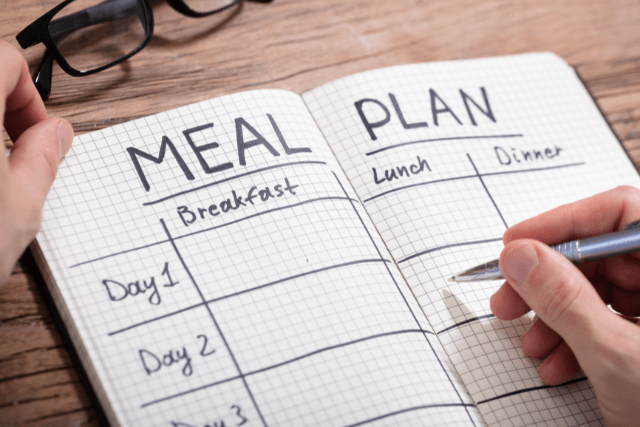Bariatric surgery provides a powerful method for achieving significant weight loss for individuals struggling with obesity. However, surgery alone is not a comprehensive solution. To fully maximize the benefits, it is crucial to follow a well-structured weight loss diet plan after the procedure. In addition, proper nutrition plays an essential role in supporting the healing process, promoting sustained weight loss, and helping to prevent complications.
Moreover, this detailed blog will walk you through the key components of a successful weight loss diet plan following surgery. As we progress, we will ensure a smooth and clear flow of information by using ample transition words and focusing on the use of active voice. Additionally, we will keep terms simple to make this guide easily understandable.
What Is a Weight Loss Diet Plan?
A weight loss diet plan is a carefully structured eating program designed to help individuals safely and effectively reduce their body weight. Following surgery, this plan plays an absolutely pivotal role. Specifically, it outlines the appropriate foods to eat, the correct portion sizes, and the best meal timing, all of which are crucial in promoting healing and ensuring long-term weight loss success. In particular, adhering to these guidelines will help you maintain the benefits of bariatric surgery for years to come.
Why Is a Weight Loss Diet Plan Crucial After Surgery?
After surgery, your body undergoes significant changes. Transitioning to a specific diet supports your body’s recovery and ensures you get necessary nutrients despite eating less.
Additionally, a proper weight loss diet plan helps:
- Prevent nutrient deficiencies
- Reduce side effects like nausea and dumping syndrome
- Preserve muscle mass while losing fat
- Maintain energy levels and overall health
Thus, adopting the right diet plan immediately after surgery sets the foundation for lasting success.
Phases of a Weight Loss Diet Plan After Surgery
Your weight loss diet plan will typically follow several phases. Additionally, each phase has unique goals and dietary restrictions thus helping your body adapt and heal.
Phase 1: Clear Liquids
Immediately after surgery, your diet starts with clear liquids. This phase usually lasts 1 to 3 days.
During this stage, you should consume:
- Water
- Broth
- Sugar-free gelatin
- Herbal teas
Clear liquids keep you hydrated without stressing your healing digestive system.
Phase 2: Full Liquids
Next, you will transition to full liquids for about 1 to 2 weeks. This phase includes:
- Protein shakes
- Milk or dairy substitutes
- Pureed soups
The focus here is on introducing calories and protein in liquid form while still protecting your stomach.
Phase 3: Pureed Foods
For approximately 2 to 4 weeks, you’ll move to pureed foods. This stage allows soft, blended foods like:
- Mashed vegetables
- Pureed lean meats
- Yogurt without chunks
Pureed foods provide more nutrients and help retrain your chewing and swallowing.
Phase 4: Soft Foods
After pureed foods, you gradually add soft solids over 2 to 4 weeks. You can eat:
- Soft cooked vegetables
- Tender fish or chicken
- Eggs
This phase builds tolerance to more texture and variety.
Phase 5: Regular Foods
Finally, you transition to a regular, healthy diet tailored to your new stomach capacity and nutritional needs. Portion control and food choices remain critical.
Importance of Protein in Your Weight Loss Diet Plan
Protein plays a vital role in healing and maintaining muscle mass after surgery. Your diet should prioritize high-quality protein sources such as:
- Lean meats
- Eggs
- Dairy products
- Beans and legumes
- Protein supplements
Experts recommend consuming 60 to 80 grams of protein daily post-surgery to support recovery and satiety.
Portion Control and Meal Frequency
Since your stomach size is smaller, eating large meals is impossible and unsafe. Instead, focus on:
- Eating small, frequent meals (5-6 times per day)
- Chewing food thoroughly
- Eating slowly to recognize fullness signals
This strategy prevents overeating, reduces discomfort, and supports digestion.

Hydration: A Key Part of Your Weight Loss Diet Plan
Staying hydrated is essential after surgery. Aim for at least 64 ounces of fluids daily, but avoid drinking 30 minutes before and after meals to prevent stomach overfilling.
Water is the best choice. Limit caffeine, sugary drinks, and alcohol, as they can cause dehydration or other issues.
Foods to Avoid After Surgery
Certain foods can cause discomfort, blockages, or weight regain. Avoid:
- High-sugar sweets and desserts
- Fried and fatty foods
- Carbonated beverages
- Tough meats and fibrous vegetables
- Bread, rice, and pasta in large amounts
Replacing these with nutrient-dense, low-calorie foods supports your goals.
Handling Common Challenges in Your Weight Loss Diet Plan
Many patients encounter several challenges during their weight loss journey, including:
- Food Intolerances: Firstly, some patients may develop sensitivities to certain foods. For instance, dairy products or high-fat foods may cause discomfort. Therefore, it’s essential to identify and avoid these triggers.
- Dumping Syndrome: In addition, patients may experience dumping syndrome, which occurs when sugary foods cause nausea, diarrhea, or lightheadedness. As a result, it’s crucial to avoid high-sugar foods and opt for a balanced, low-sugar diet to minimize these symptoms.
- Emotional Eating: Emotional eating can be a significant barrier to weight loss. For example, stress or boredom may lead to overeating. Consequently, practicing mindful eating and seeking support through counseling can help manage this challenge.
By addressing these challenges proactively, patients can improve their chances of sustained weight loss and overall well-being.
To overcome these, work with your healthcare team, keep a food diary, and seek support groups.

The Role of Exercise in Maximizing Your Weight Loss Diet Plan
Exercise plays a critical role in enhancing the effects of your weight loss diet plan. In addition to boosting calorie burn, physical activity helps preserve muscle mass and improves mood. Moreover, it supports overall well-being. Thus, it’s essential to incorporate exercise into your routine for optimal results. Aim to:
- Initially, start with gentle walking during your recovery phase, as this helps ease your body back into physical activity.
- As you progress, gradually increase the intensity of your workouts by adding cardio and strength training. This will further elevate calorie burn and muscle preservation.
- Most importantly, stay consistent with your exercise routine. By doing so, you ensure long-term benefits that help maintain your weight loss and overall health.
Supplements and Vitamins: Supporting Your Weight Loss Diet Plan
Due to reduced food intake, vitamin and mineral supplements are vital after bariatric surgery. Common supplements include:
- Multivitamins
- Calcium with vitamin D
- Vitamin B12
- Iron
Follow your doctor’s recommendations and get regular blood tests.
Tips for Long-Term Success With Your Weight Loss Diet Plan
To ensure long-term success, start by planning your meals and snacks ahead of time. This way, you can avoid making impulsive food choices that may derail your progress. Additionally, it’s important to avoid skipping meals; this helps regulate your metabolism and prevent overeating later. Furthermore, practicing mindful eating is essential. By doing so, you become more aware of your hunger cues and help maintain a healthy relationship with food.
Moreover, staying connected with your healthcare team is key. They can provide valuable guidance, address any challenges, and adjust your plan as needed. Finally, make it a habit to regularly monitor your weight and health. Doing this allows you to track progress, make necessary adjustments, and stay motivated on your journey.
Common Myths About Weight Loss Diet Plans After Surgery
There are several misconceptions about weight loss diet plans after surgery, and it’s important to clear them up. For example, many people believe:
Myth: You can eat anything after surgery.
Fact: However, food choices remain critical, and unhealthy foods can hinder your progress.
Myth: Supplements aren’t necessary.
In reality, supplements are essential to prevent nutritional deficiencies, especially since your food intake is reduced.
Myth: Weight loss is automatic.
On the contrary, diet and lifestyle choices drive results, and without them, success may be limited. Therefore, maintaining a healthy diet and regular exercise routine is crucial.
By debunking these myths, you can stay on track and achieve lasting success with your weight loss journey after surgery.
Conclusion
A well-structured weight loss diet plan after surgery is essential for maximizing your results and maintaining your health. First, by following proper nutrition phases, prioritizing protein, controlling portions, staying hydrated, avoiding problem foods, and incorporating exercise and supplements, you set yourself up for lasting success. Additionally, remember to use support resources and keep up with follow-up care.
Ultimately, your dedication to your diet plan will pay off in improved health, confidence, and quality of life.










